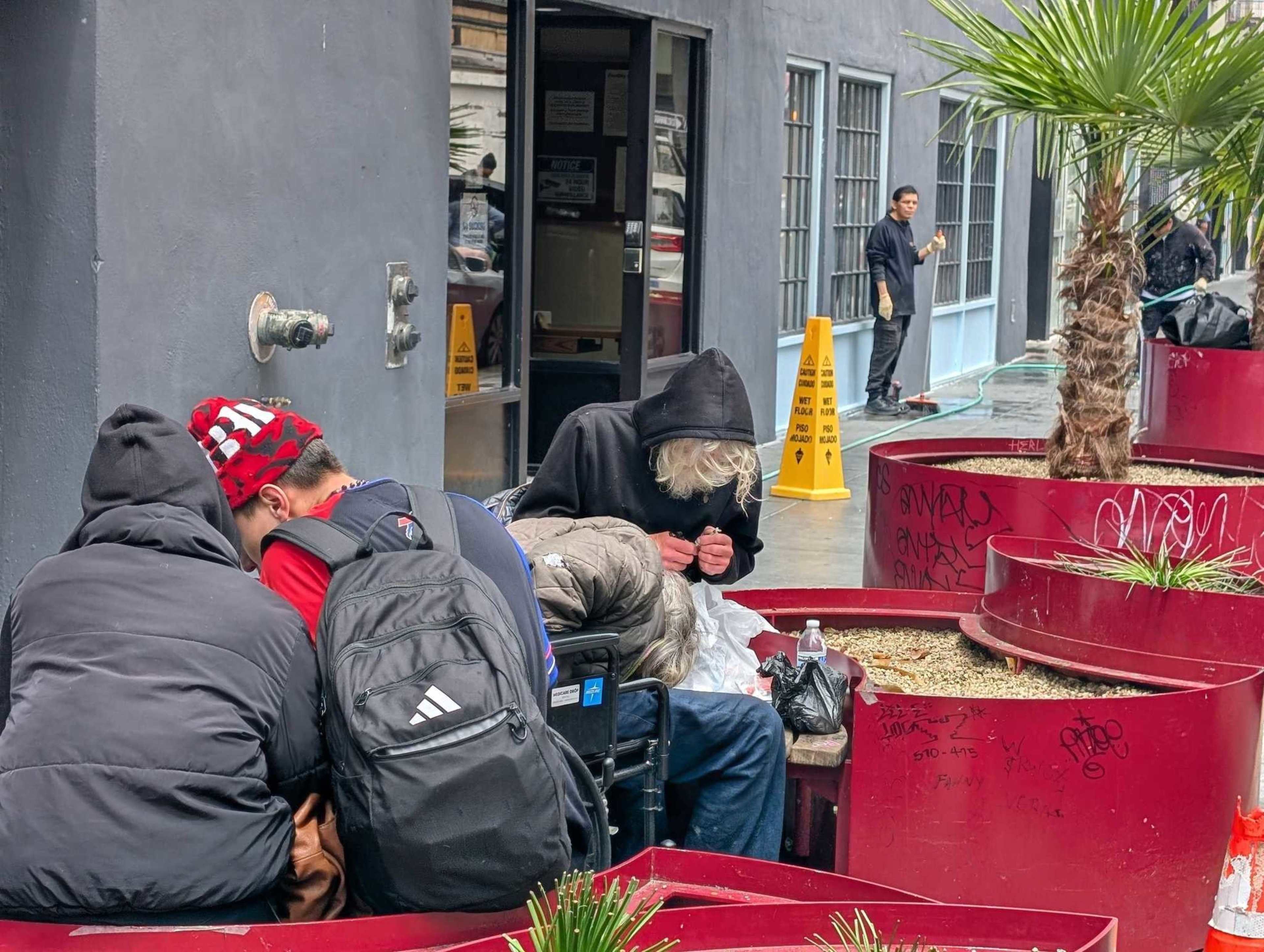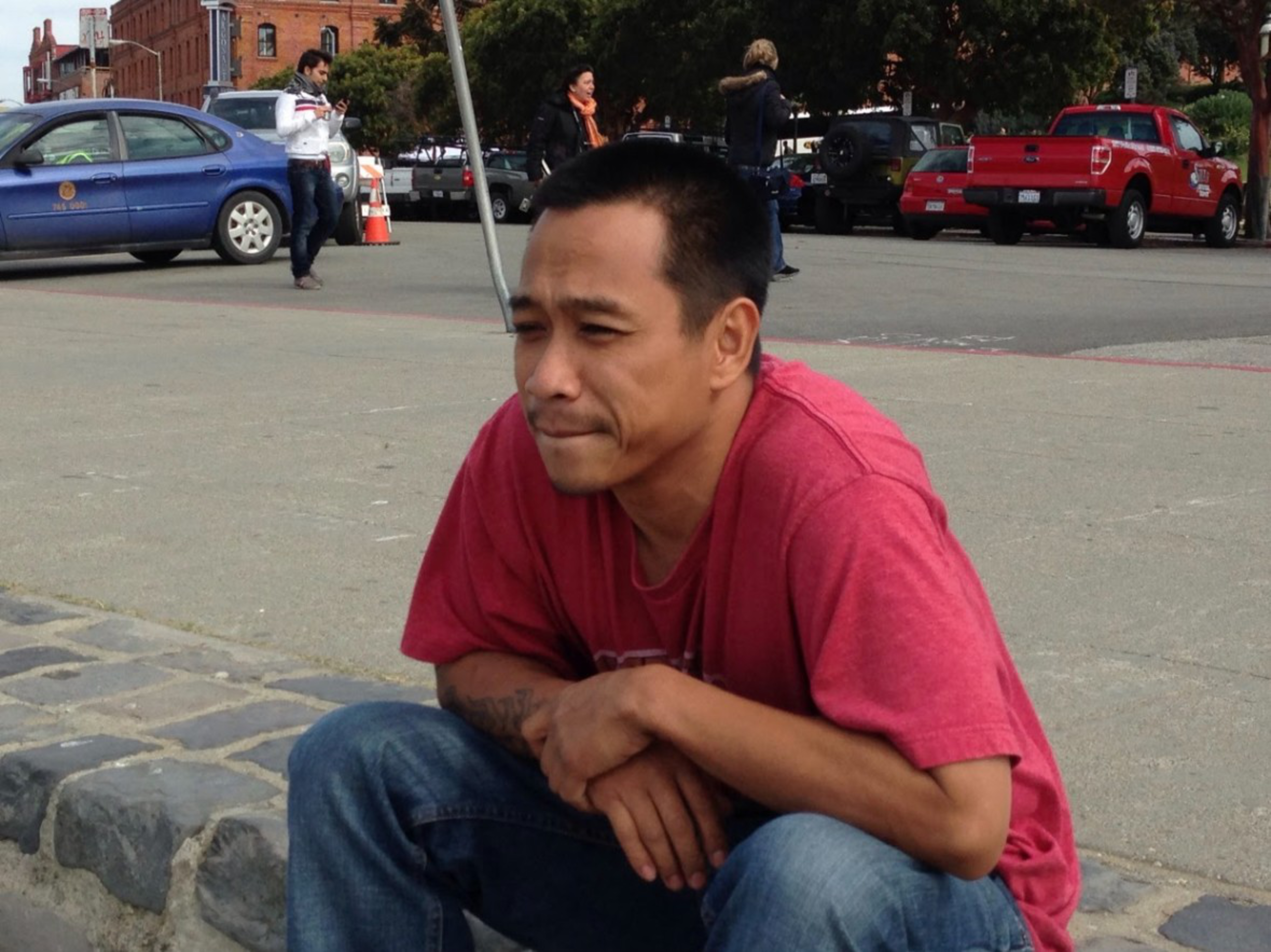Melvin Bulauan’s son, Anjru Jaezon de Leon, said his father called him July 13 in distress.
“I tried to calm him down,” said de Leon. “He said, ‘Anjru, I’m anxious. I’m scared. I would rather go back to jail than stay here.’”
The “here” his father was referring to, according to de Leon, was 111 Taylor St., a halfway house in the Tenderloin run by GEO Group (opens in new tab), a Florida-based company that privately operates 50 correctional facilities nationwide — including a handful of Immigration and Customs Enforcement processing centers. The facility at 111 Taylor St. has long faced allegations of substandard living conditions, including poor medical care. GEO Group has operated the site since 1989.
The call from Bulauan was the last time his family spoke with him. The 45-year-old resident of 111 Taylor St. was found dead July 14, his birthday, after reportedly living at the halfway house for less than a week. His body was found a block away at 225 Taylor St., according to de Leon, who said the parole officer in charge of Bulauan was unaware that he had left the facility. Details of the circumstances or cause of death were unavailable.
“My dad was a kind person,” said de Leon. “He really loved us. … He was strong. He was funny.” A GoFundMe (opens in new tab) campaign to pay for Bulauan’s funeral has raised nearly $25,000.
Now the halfway house and its operators are facing scrutiny after a local lawmaker Tuesday called for a hearing into allegedly poor operating conditions at the facility and whether they contributed to Bulauan’s death.
Supervisor Bilal Mahmood, who represents the Tenderloin, said he would subpoena GEO Group representatives for more information about conditions at 111 Taylor St.

“Residents of the Tenderloin deserve answers as to what one of the largest private prison companies is doing in our backyard,” he said.
GEO Group spokesperson Monica Hook said 111 Taylor St. residents have the ability to come and go with permission in order to find work or receive services.
Hook said Bulauan exited July 13 without authorization and was reported to the “supervising agency,” which she did not name. Once he was reported as missing, he was discharged from 111 Taylor St. the same day.

“The facility was notified as a courtesy by the supervising agency on July 15, 2025, that Mr. Bulauan was deceased,” said Hook. “We have no additional information.”
Mahmood said that in addition to details about operation of the halfway house, he plans to question GEO Group about allegations of civil rights violations (opens in new tab) and its relationship with the federal government as President Donald Trump’s administration ramps up immigration raids.
The publicly traded company is worth more than $3 billion (opens in new tab) and saw its stock price skyrocket after Trump’s election in November. GEO is one of the country’s largest for-profit prison operators; representatives this year said it was investing tens of millions of dollars in immigration enforcement activities, according to NPR (opens in new tab).
San Francisco and other California cities have seen a flurry of protests against ICE in recent months. Local lawmakers have responded by affirming San Francisco’s status as a sanctuary city, which limits local law enforcement’s ability to work with federal immigration officials.

Mahmood said GEO Group’s operations are “antithetical to San Francisco’s values.”
“This is a troubling situation,” he said.
On Tuesday, signs posted in windows at 111 Taylor St. said no audio or video recording was allowed without permission. A guard was posted at the entrance, and anyone entering had to pass through a metal detector.
The facility has a checkered history. In the late 1960s, it was the site of the Compton Cafeteria riot, a protest by members of the LGTBQ community over their treatment by police. According to reporting in the San Francisco Chronicle (opens in new tab), the halfway house has faced scrutiny from city inspectors and was the subject of a documentary (opens in new tab) short by Adachi Project, from the late Public Defender Jeff Adachi, about conditions during the Covid pandemic.
Dozens of community members protested GEO Group’s operations at the halfway house during a July 15 hearing at the city’s Board of Appeals, which voted to approve (opens in new tab) the company’s continued use of the building.
Santana Tapia, a spokesperson for Compton’s x Coalition, a group advocating for the removal of GEO Group at the halfway house, said her group would like to see the site reclaimed as “a sacred space for San Francisco’s trans and queer community.”
“We demand accountability, we demand an end to these inhumane conditions, and we demand the city take action now,” Tapia said. “We say their names — we say Melvin Bulauan’s name — and we will not stop until 111 Taylor is free.”
